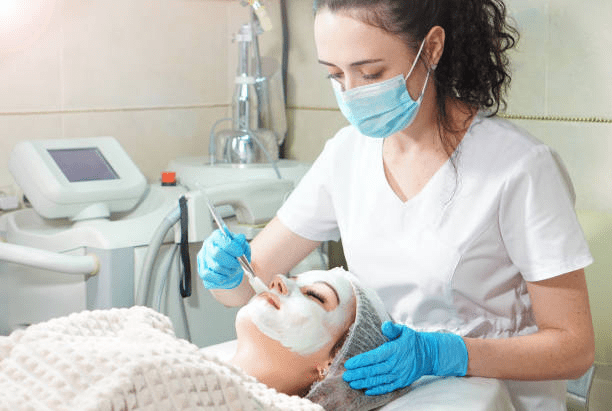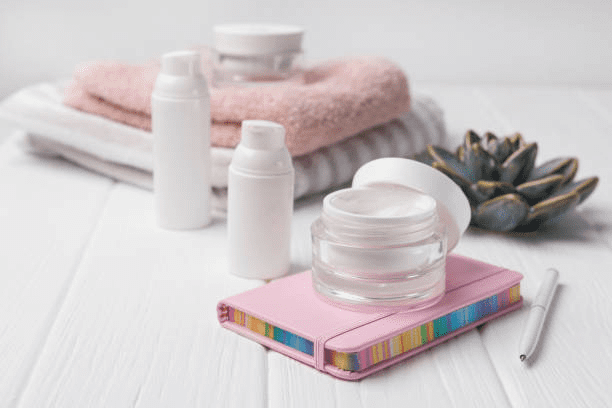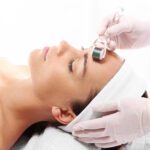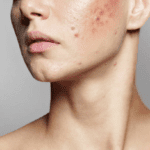
When it comes to acne scar and hyperpigmentation treatment, it can feel like we’ve entered a labyrinth of countless skincare products and procedures, each promising results that seem too good to be true.
Two such contenders are chemical peels and various skin-lightening methods. But how do they really measure up in terms of effectiveness and safety? Let’s dive in to shed some light on the subject.
Chemical Peels: A Closer Look
A chemical peel is a procedure that involves applying a solution to the skin, causing it to “peel” off, revealing new, less damaged skin underneath. This method can be highly effective for treating acne scars and hyperpigmentation by reducing the appearance of dark spots and evening out skin tone.
There are different chemical peels—light, medium, and deep—each varying in potency and, therefore, results. Light peels are safe to use more frequently and can subtly improve skin texture and tone. Medium to deep peels offer more dramatic results, but they require a longer recovery time and carry a higher risk of side effects, such as scarring and infection.
Beyond Chemical Peels

Now, let’s consider the other players in the skin-lightening arena. These include over-the-counter (OTC) topical creams, prescription medications, and laser treatments.
OTC skin-lightening products usually contain hydroquinone, kojic acid, or vitamin C. While they can be effective for mild hyperpigmentation, they typically require consistent use over several months to see noticeable results. Also, they may not be potent enough to make a significant difference in the appearance of deeper acne scars.
On the other hand, prescription skin-lightening treatments contain higher concentrations of active ingredients and can deliver more noticeable results. However, they often come with increased risks of skin irritation and other side effects.
So, Which One Should You Choose?

Choosing the right acne scar and hyperpigmentation treatment depends on various factors, including the severity of your skin condition, your budget, and your comfort with potential side effects.
If you have mild skin discolouration or superficial acne scars, an OTC product or light chemical peel could be a suitable option. Consider a deeper peel, prescription treatment, or laser therapy for deeper scars or more severe hyperpigmentation.
However, it’s crucial to remember that everyone’s skin responds differently to these treatments. What works for one person may not necessarily work for you.
So, before you start any new skincare treatment, it’s always wise to consult with a dermatologist. They can provide personalized advice based on your skin type and condition and help you navigate your way to healthier, brighter skin.
Conclusion
Remember, your skin is unique, and so should your skincare journey. Always seek professional advice before embarking on a new treatment path. After all, the goal is to enhance your natural beauty and promote healthy skin, not just to treat superficial imperfections.
Ultimately, the best treatment option will depend on your personal skin goals, tolerance for potential side effects, and expert advice from med spa trusted experts.
The journey to brighter, healthier skin is a marathon, not a sprint, so patience and informed decisions will go a long way to ensure the journey is as rewarding as the result.


